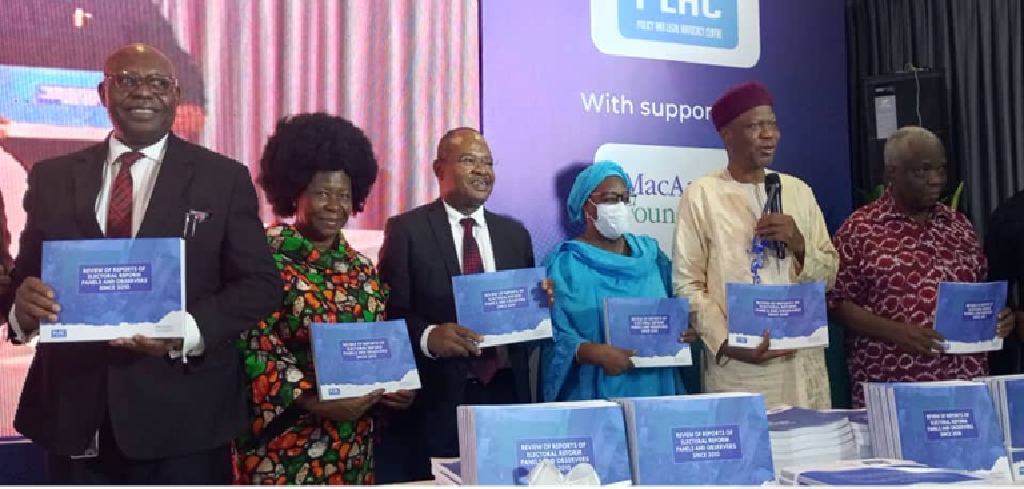Listeners:
Top listeners:
-
play_arrow
104.9FM Best rock music demo
-
play_arrow
Demo Radio Nr.1 For New Music And All The Hits!
-
play_arrow
Demo Radio Techno Top Music Radio
-
 play_arrow
play_arrow
Police Commissioner Launches Weapon and Riot Control Training for FCT Officers Democracy Radio
Experts Warn: Poverty, Weak Institutions Threaten Nigeria’s 2027 Elections

By Julian Osamoto
Civil society leaders and electoral experts have cautioned that without urgent reforms, Nigeria risks undermining the credibility of its 2027 general elections.
Speaking at the unveiling of a review on electoral reforms in Abuja, hosted by the Policy and Legal Advocacy Centre (PLAC) in partnership with PAACA, WRAPA, and the MacArthur Foundation, participants agreed that the country’s democracy faces both legislative and systemic challenges.
PLAC’s Executive Director, Dr. Clement Nwankwo, said Nigeria remains far from holding elections free from controversy, stressing that reforms must be pursued with urgency.
“Unless reform happens, our electoral system will continue to suffer the same challenges it faces today,” he said.
He warned that poverty is increasingly being used as a tool to influence voters.
“The rapid impoverishment going on in Nigeria is a threat to the 2027 elections. It is also a strategy for those who do not want credible elections,” Nwankwo added.
Legislative Uncertainty
Lawmakers are currently considering repealing and reenacting the Electoral Act, with public hearings scheduled for October 13 and a joint retreat planned for October 16–19. The goal is to pass a new law by November.
But experts, including criminologist Prof. Etannibi Alemika, fear unresolved constitutional amendments may force early changes.
“It looks like we might have a new Electoral Act before the Constitution Review is completed. That could mean the Act experiences its first amendments even before the next elections,” he warned.
Beyond Laws and Amendments
Alemika and others stressed that the real threats go beyond legislation. They pointed to manipulation at polling and collation centres, institutional weakness, and the unchecked influence of money in politics.
Political scientist Prof. Nkwachukwu Orji, presenting the reform review, noted that Nigeria has a long history of altering electoral laws.
Between 1999 and 2022, the Electoral Act was amended 12 times. While some changes were genuine, others were shaped by political interests, creating instability.
“The high frequency of reforms has become a problem in itself,” Orji said, calling for deeper reforms within INEC, security agencies, and political culture.
Civil Society’s Role
Speakers, including WRAPA’s Secretary-General, Hajia Saudatu Mahdi, commended civil society and long-term partners like the MacArthur Foundation for sustaining electoral advocacy since 2010.
They agreed that while laws matter, addressing socio-economic hardship, manipulation, and institutional weakness is essential to safeguard democracy.
“Even with the best reforms, you will still find reasons to review elections,” one civil society leader remarked. “Reform requires everybody on board.”
The Road to 2027
As Nigeria counts down to the 2027 elections, experts insist reforms are no longer optional. Without tackling poverty, political resistance, and institutional gaps, they warned, credible elections will remain elusive.
Written by: Julian Osamoto
#DemicracyRadio #PLAC Electoral reforms
Similar posts
Copyright Democracy Radio -2024


